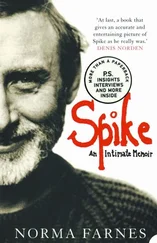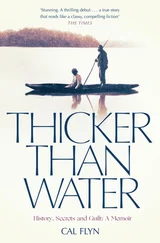We tried a few more times that spring, with similar results. Agent Jeffries, an excellent tennis player, was really her opposition of choice on the tennis courts, because he would volley—I learned the hard way what that word meant—and give Mrs. Kennedy an excellent workout. Unfortunately, he was not always available. Most staff members she tried were not much better than I, so when she couldn’t find anyone else to hit balls with it was finally decided that the best option would be to bring in a pro from a local tennis club to play with her. I certainly gained a lot more respect for the game of tennis and the skill it requires, and was thankful there was no photographic evidence of my short stint as Mrs. Kennedy’s tennis partner.
THE WEEKEND OF April 15 and 16 seemed like any other, with Mrs. Kennedy going to Middleburg on Friday, and the president arriving Saturday afternoon. The public was unaware that the president was dealing with his first major crisis—a failed attempt to invade Cuba by some fourteen hundred American-trained Cuban exiles, that would forever be known as “the Bay of Pigs.”
On Monday, April 17, President and Mrs. Kennedy hosted a state luncheon at the White House for the prime minister of Greece, Konstantinos Karamanlis, and his wife, Amalia, as the Bay of Pigs crisis was unfolding. Mrs. Karamanlis was thirty-two years old—more than twenty years younger than her husband—and she and Mrs. Kennedy hit it off immediately.
After the departure of the Greek couple, Mrs. Kennedy asked me, “Mr. Hill, have you ever been to Greece?”
“Yes, I was in Athens with President Eisenhower.”
“Oh, really?” she answered, wide-eyed. “The prime minister and Mrs. Karamanlis invited the president and me to visit them in Athens. The president can’t make it, but he suggested I go anyway. I’ve always dreamed of visiting the Acropolis and the Parthenon.”
“That’s wonderful,” I said. “I’m sure you’d love Greece. You should definitely take advantage of the opportunity.”
Shortly thereafter, SAIC Jerry Behn called me into his office in the East Wing of the White House and informed me that I would be doing the advance for Mrs. Kennedy in Paris and Greece.
“Tish Baldridge will be the senior staff advance person, so you’ll be working directly with her,” Behn said. “She used to work in Paris—knows everybody and all the locations—and she speaks fluent French.”
Tish Baldridge was extremely organized and paid close attention to detail. She was exactly the kind of person I liked to have with me on an advance because I didn’t have to worry about things falling through the cracks. She would handle everything with regards to Mrs. Kennedy’s agenda, gifts, seating arrangements, and menus, so that I could focus on logistics and security. This was a huge relief because I had seen how involved visits to foreign governments could become. Protocol always played a big part in these visits and the further I could stay away from those issues, the better. The last thing I needed was to become involved in a squabble over someone’s hurt feelings because they weren’t seated at the table with the president and first lady.
I had been in Paris twice with President Eisenhower—the first time in December 1959, and again during his failed summit meeting with Khrushchev in May 1960—and I was excited for the opportunity to return. Paris had enchanted me like no other city I had visited. There was something about the way its architectural and cultural history had been preserved and maintained that really appealed to me. From the grandeur of the Champs-Élysées to the meandering side streets lined with sidewalk cafés that were filled with couples lingering over a glass of Bordeaux at lunchtime, Paris had matchless charm.
In 1959, I had flown directly from Athens to Paris, a few days ahead of President Eisenhower, along with a few other Secret Service agents and some of the president’s staff. We weren’t there on advance, but had been sent ahead due to space limitations as the president traveled from Athens to Tunis to Toulon, and finally by train to Paris. Thus we had some rare free time. A member of the French police took us under his wing and gave us the “locals” tour of the city. He took us down to Les Halles—which was an open-air farmers’ market where all the farmers came into the city at three o’clock in the morning to set up and sell their produce. There was one vendor who sold homemade onion soup that was piping hot, layered with thick slices of baguette, and mounds of Gruyère cheese that crusted over the top. We would go down to Les Halles around 4:30 or 5:00 in the morning, and have the soup for breakfast. The mere thought of it made my mouth water with anticipation.
“Sounds great,” I replied to SAIC Behn. “When do we leave?”
“The trip is scheduled for the end of May, so you and Tish will go the week before. The president and Mrs. Kennedy will spend three days in Paris, followed by a trip to Vienna, where he’s going to meet with Premier Khrushchev. After that, they’re going to London for a few days. The president will return to Washington, but Mrs. Kennedy is going to Athens with her sister, Lee, and Lee’s husband, Prince Radziwill.”
Mrs. Kennedy’s younger sister Lee had married Stanislaus “Stash” Radziwill, who was a Polish prince. I had never met him before. It sounded like an ambitious trip, to say the least.
Behn continued, “I’m going to need you to go directly from Paris to Athens to do the advance for Mrs. Kennedy.”
“Yes, sir,” I answered. I remained cool on the outside, but inside I was already getting excited about the trip. Going to Europe as an agent on the First Lady’s Detail wasn’t something I had anticipated—especially just a few months into a new administration.
“I’m going to have Ken Giannoules do the advance with you.”
Giannoules was a Special Agent on President Kennedy’s detail. I had worked with him a few times when the president was in Middleburg, and we got along.
“He’ll be in Paris with the president,” Behn said, “so the two of you can fly directly to Athens from there. He’s fluent in Greek and apparently has relatives still living in Athens, so he should be a big help.”
“Yes, sir,” I said. “We’ll take care of it.”
“Okay. Thanks, Clint. Stay loose.”
Stay loose. That was one of Jerry Behn’s favorite expressions and it sure was descriptive of the attitude you had to have as a Secret Service agent. Don’t be too rigid. Expect the unexpected and be ready to adjust to the situation. You never know what’s around the corner.
JUST A FEW weeks later, I was headed to Paris with Tish Baldridge and a couple of agents from the President’s Detail to conduct the complex advance for President Kennedy’s first trip to Europe since taking office. There were a million details to work out, and we had just one week to have all the logistics solidified before President and Mrs. Kennedy arrived.
Ever since this trip to Paris and Vienna had been announced, anybody that had ever been associated with the White House was vying for a place on Air Force One or the press plane. It was not just President and Mrs. Kennedy’s arrangements that needed to be worked out, but hotel and transportation for the dozens of accompanying staff that included Provi, National Security Advisor McGeorge Bundy, and everybody in between. I worked with Tish and conferred with members of the U.S. Embassy, but mostly dealt with government officials, especially the Sureté Nationale—France’s national police force.
The biggest problem I had was that I could not speak the language. When Tish and I were in meetings together, she would carry on in fluent French while I sat there and tried to pick up the gist of what was being said from hand gestures and various common words. In most cases, I wouldn’t find out until after the meeting was over what had actually been agreed upon. Fortunately, when I dealt with the law enforcement officials, the U.S. Embassy provided an interpreter. There were times when I felt at an extreme disadvantage, but I had no choice other than to rely on the people who could translate for me.
Читать дальше











